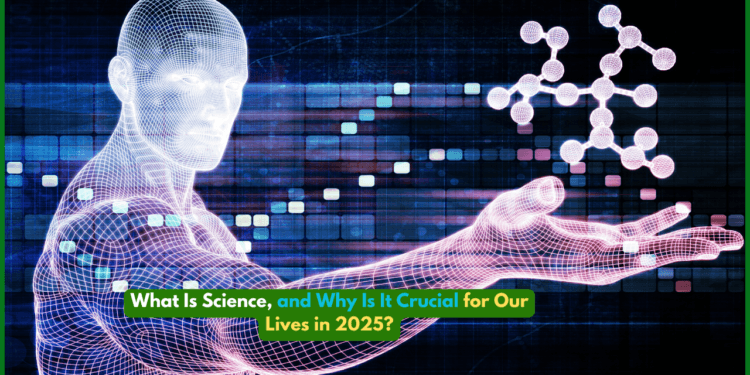Science, a cornerstone of human progress, shapes our understanding of the world and drives innovation that touches every aspect of daily life. But what exactly is science, and why does it hold such importance in 2025? Recent insights from educational and scientific reports provide a clear picture of its definition, impact, and relevance for individuals and societies worldwide.
What Is Science?
Science is defined as a systematic body of knowledge encompassing general truths or laws, obtained and tested through the scientific method—observation, experimentation, and measurement of the natural world. According to a leading dictionary, it includes both the physical sciences, like physics and chemistry, and natural sciences, such as biology, focusing on understanding phenomena through rigorous inquiry. A recent educational resource further describes science as the study of the material and physical universe, involving observation, experimentation, and the formulation of laws to explain facts, emphasizing its role in advancing human knowledge.
In essence, science is a disciplined approach to discovering how the world works, from the smallest particles to the vast cosmos, making it a universal tool for exploration and problem-solving.
Why Is Science Important in Our Lives?
Science’s importance in 2025 cannot be overstated, as it underpins nearly every facet of modern life, offering practical solutions, fostering progress, and enhancing well-being. Here’s why it remains crucial:
- Daily Life Enhancements: Science has revolutionized everyday activities, from the smartphones we use to communicate, powered by advanced physics and engineering, to the medical treatments that save lives, rooted in biological research. For instance, innovations like electric vehicles, developed through chemical and environmental science, reduce pollution, as noted in a study on sustainable technology. These advancements, detailed in a report on science in daily life, make tasks easier, safer, and more efficient for people globally.
- Health and Medicine: Scientific discoveries have eradicated diseases, improved diagnostics, and extended life expectancy. Vaccines, antibiotics, and cutting-edge treatments for cancer and heart disease stem from decades of biological and medical research. A recent agricultural science report highlights how scientific advancements in nutrition, like fortified foods, address health challenges, ensuring better quality of life in 2025.
- Economic and Social Progress: Science drives economic growth by fueling industries such as technology, agriculture, and energy. The development of renewable energy solutions, like solar and wind power, tackles climate change while creating jobs, as outlined in a progress analysis. It also promotes human happiness through material improvements, such as improved infrastructure and communication systems, enhancing social conditions and reducing poverty, as emphasized in a historical overview of scientific advancement.
- Education and Innovation: Science fosters curiosity and critical thinking, forming the foundation of education worldwide. It encourages continuous innovation, from AI-driven technologies to space exploration, pushing humanity toward new frontiers. A 2025 report on scientific discoveries underscores how research in agriculture, conducted by institutions like the U.S. Department of Agriculture, improves food production, directly impacting global food security and economic stability.
- Environmental Sustainability: In an era of climate change, science provides solutions to protect the planet. Research into sustainable farming, renewable energy, and conservation biology helps mitigate environmental damage, ensuring a habitable future, as noted in a study on human progress through science. This is especially critical in 2025, as societies address pressing challenges like global warming and biodiversity loss.
Science’s Role in 2025
In 2025, science remains a vital force, addressing contemporary issues like pandemics, technological disruption, and environmental crises. Its systematic approach ensures that solutions are evidence-based, reliable, and adaptable, benefiting individuals, communities, and nations. Whether it’s developing life-saving vaccines, improving agricultural yields, or advancing AI, science’s impact is profound and pervasive, shaping a brighter future for humanity.
For students, professionals, and curious minds, understanding science’s definition and importance fosters appreciation for its role in daily life. As we navigate the complexities of 2025, science continues to be an indispensable tool for progress, offering hope and solutions for generations to come.
For the latest insights on science’s role in society, consult educational platforms, research institutions, or science news updates to explore its ongoing impact.

















































